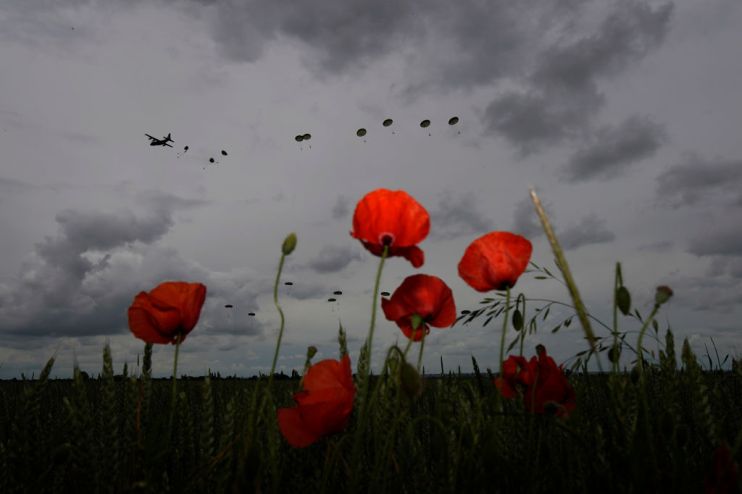D-Day offers some perspective for anyone consumed with the current ‘national crisis’

On Monday, I took part in BBC Radio 4’s Start the Week, which this week focused on the concept of a national crisis – and how countries get out of it.
Academic and author Jared Diamond’s new book Upheaval draws parallels between how an individual deals with a personal crisis to how nations overcome them. He puts emphasis on acknowledging the problem, understanding one’s values, and fencing in problems to tackle them efficiently and directly.
It was a fascinating discussion, which highlighted where the parallels really work, and where they don’t quite add up. Discussing the book in the context of President Trump’s win in 2016 and the Brexit vote in the same year, it was clear that agreeing a nation’s values is particularly tricky work – especially when the country is split 50-50 down the middle.
But these crises are reflected in a radically different light when you consider yesterday’s commemorations. Marking the 75th anniversary of D-Day has made many of us stop and pause, to think about what life might look like, if our elders hadn’t displayed such bravery, making the ultimate sacrifice on the beaches of Normandy.
The fact of the matter is that none of us would have been able to take part in the plethora of free, democratic and diplomatic activities that occurred this week if it hadn’t been for those who fought for our freedom.
The fascist ideology that spread across Europe was in direct opposition to the free and fair elections that made way for elected Presidents and Prime Ministers to stand on stage together and speak to a free press.
The Nazis also did not allow for protests in the street, for dissenters to express their concerns publicly (or often privately), nor did they extol compassion or fairness in its policing services.
In contrast, freedom and fairness were both on display this week, as we saw how the police handled the Trump protest, and indeed the Extinction Rebellion demonstrations weeks before.
The special relationship itself was cemented after the US and UK joined forces, fought, and sacrificed so much to protect liberty and independence, against one of the greatest evils the world has ever known.
This is not to undermine our political and policy debates today. Trump’s election represents an array of tensions in the US, with swathes of people voicing their frustrations about feeling left behind, excluded, and resentful of the metropolitan and rural divide.
Brexit is the major political issue of a generation, and the heated debates over how Britain handles its future relationship with Europe are probably necessary for securing a good arrangement for the years to come. Similarly, whether the NHS is on the table in a free trade negotiation between the US and the UK is a genuine and important question, as Britain ventures out into the world on its own, forging its own way.
But we must put such “crises” in context. The challenges we hope to overcome are being tackled in countries with enshrined institutions, democratic processes, and firm commitments to the rule of law.
We are working towards a freer, more prosperous, more tolerant world. We do not currently have to extend a lifeline to freedom itself. That is what our ancestors did for us.